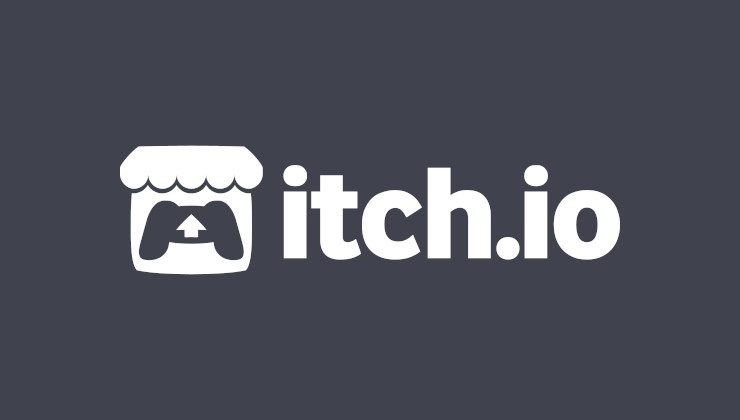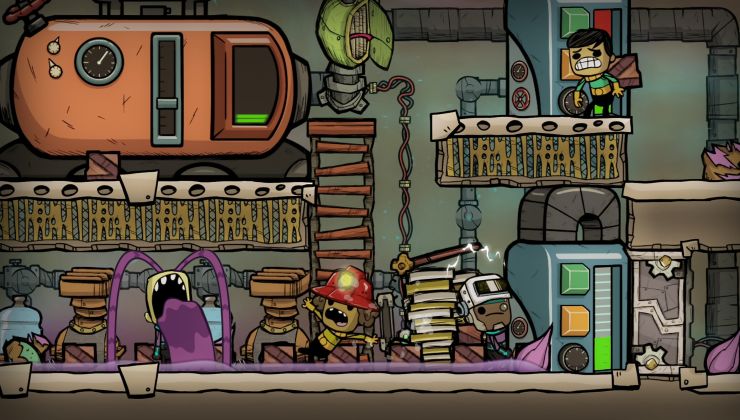Back in April 2024, I wrote about the Stop Killing Games initiative from Ross at Accursed Farms. Now, it's heading to the European Union with a European Citizens' Initiative you can give you vote to. Sorry fellow Brits, but thanks to Brexit we can't get involved in this. If you're part of the European Union though, you can now truly try and make your voice count.
As a reminder on what it's all about from the ECI:
This initiative calls to require publishers that sell or license videogames to consumers in the European Union (or related features and assets sold for videogames they operate) to leave said videogames in a functional (playable) state.
Specifically, the initiative seeks to prevent the remote disabling of videogames by the publishers, before providing reasonable means to continue functioning of said videogames without the involvement from the side of the publisher.
The initiative does not seek to acquire ownership of said videogames, associated intellectual rights or monetization rights, neither does it expect the publisher to provide resources for the said videogame once they discontinue it while leaving it in a reasonably functional (playable) state.
It's a worthy cause, because some publishers do have a habit of shutting down games when they move on, leaving players with nothing to show for it even though they paid for it. Games that contain a single-player element especially should always have an option to let you continue on. It's a bit more complicated for online-only games, say for those that have micro-transactions and battle passes, but still you're often spending a whole lot of your money to be again left with nothing.
Check out the initiative and give your vote. See more on the Stop Killing Games website.

Direct Link
A potentially interesting outcome of this could be that publishers that sell a product that depends on an external party for functioning will have to specify a minimum time that they guarantee the functioning of this product for all or part of its functions. This could apply to everything from games to a "smart" fridge. I think it would be extremely beneficial for consumers if producers are forced to think about this before they are allowed to sell anything so it could be included in the value of a product.
No company will ever promise that, and if anybody bothered to read the fine print, they would know that companies actually state the opposite, that there is no explicit or implicit guarantee of future functionality, and that product support can be discontinued at any time with or without notice.
And that's why they need to be forced. No promise of functionality for a reasonable amount of time is a clear indication of the value of a product. Having this explicit is what will make people vote with their wallets. More regular people that is. I already value everything with a 3rd party dependency at zero for a primary function at zero. (and a second party dependency if I don't trust them)
I must have missed the pre-2023 iPhone with an USB-C port!? Can you link to a source claiming Apple released an iPhone with an USB-C port prior to the EU legislation?You can't expect the entire global software industry to suddenly go open source just because some gamers in Europe have their noses out of joint."You can't expect the entire global smartphone industry to suddenly go USB-C just because some customers in Europe have their noses out of joint."
Why Apple Adopted USB-Csource: https://www.macrumors.com/guide/usb-c-iphone/
The European Union instituted legislation mandating that electronic devices like smartphones use a "common port," which the EU established was the USB-C port.
Why are you so pro-corporations/anti-consumers?
Nevermind that USB-C was in wide use years before that initiative. It seems the EU simply codified a standard that had already been adopted by the tech industry. ¯\_(ツ)_/¯
Last edited by benstor214 on 5 August 2024 at 3:57 pm UTC
"Remove DRM and give us your server code" is to essentially demand that companies release their games for free after they are no longer commercially viable.
It's absolutely not, and I am pretty sure you know that.
Removing the DRM is just yet another patch against the already released executable. Companies are actually doing it every now and then. It doesn't make the game "free", since nobody is forcing them to put up the assets for free download. People who already bought it can still continue to play it, that's all this demand is about.
Same for the server code. I am not aware that releasing stand-alone servers has made any game "free". Same reason as above. The server code alone doesn't do anything. Again, check the Steam Tools page. There are plenty examples of released server software to counter your point.
Also the question remains why they would even care about releasing the game for "free", if they are no longer planning to sell it anyway (which is the assumed scenario here). The economic damage done is exactly zero, since you can't earn money with a game you're not selling. But hey, nobody is demanding greedy corporations to be not greedy. All that's requested here is people being able to continue to use a product they PAID FOR, and tell their makers that it's not ok to disable people's games on a whim, or when they had a bad day.
As a personal note: I get the idea where our positions on this matter are irreconcilable. You're a free-market advocate. I am pro-regulation when it's warranted, and it's remarkably often, IMHO. We won't agree on this, and that's ok. But maybe we can refrain from making misleading statements like "releasing server software makes a game free", when that's clearly not true?
But hey, nobody is demanding greedy corporations to be not greedy.Some people just like their corporations greedy.
For example: There shouldn’t be a such a silly thing as health insurance - you’re poor, you die.
Spoiler, click me
Last edited by benstor214 on 5 August 2024 at 10:19 pm UTC
A potentially interesting outcome of this could be that publishers that sell a product that depends on an external party for functioning will have to specify a minimum time that they guarantee the functioning of this product for all or part of its functions. This could apply to everything from games to a "smart" fridge. I think it would be extremely beneficial for consumers if producers are forced to think about this before they are allowed to sell anything so it could be included in the value of a product.
No company will ever promise that, and if anybody bothered to read the fine print, they would know that companies actually state the opposite, that there is no explicit or implicit guarantee of future functionality, and that product support can be discontinued at any time with or without notice.
And that's why they need to be forced. No promise of functionality for a reasonable amount of time is a clear indication of the value of a product. Having this explicit is what will make people vote with their wallets. More regular people that is. I already value everything with a 3rd party dependency at zero for a primary function at zero. (and a second party dependency if I don't trust them)
That's simply not realistic. No business ever plans for their product to fail, but it happens regularly and unpredictably, which is why no developer will ever make the sort of promise you demand. It's just not going to happen.
"Remove DRM and give us your server code" is to essentially demand that companies release their games for free after they are no longer commercially viable.
It's absolutely not, and I am pretty sure you know that.
Removing the DRM is just yet another patch against the already released executable. Companies are actually doing it every now and then. It doesn't make the game "free", since nobody is forcing them to put up the assets for free download. People who already bought it can still continue to play it, that's all this demand is about.
Same for the server code. I am not aware that releasing stand-alone servers has made any game "free". Same reason as above. The server code alone doesn't do anything. Again, check the Steam Tools page. There are plenty examples of released server software to counter your point.
Also the question remains why they would even care about releasing the game for "free", if they are no longer planning to sell it anyway (which is the assumed scenario here). The economic damage done is exactly zero, since you can't earn money with a game you're not selling. But hey, nobody is demanding greedy corporations to be not greedy. All that's requested here is people being able to continue to use a product they PAID FOR, and tell their makers that it's not ok to disable people's games on a whim, or when they had a bad day.
As a personal note: I get the idea where our positions on this matter are irreconcilable. You're a free-market advocate. I am pro-regulation when it's warranted, and it's remarkably often, IMHO. We won't agree on this, and that's ok. But maybe we can refrain from making misleading statements like "releasing server software makes a game free", when that's clearly not true?
I don't feel I've said anything that's not true, and I can think of any number of legitimate business reasons why a company would not wish to make its intellectual property and code freely available. That some companies choose to do so without coercion is commendable, but it would be immoral to force them to do so. As always, the power rests in the hands of consumers to support those companies who do right by them, and avoid those that don't.
That some companies choose to do so without coercion is commendable, but it would be immoral to force them to do so.No it wouldn't. Companies are legal constructs, not people. It isn't immoral to force them to do things. Sure, they've managed to get treated legally as "persons" and made successful legal appeals to the idea of having rights like humans, but those appeals are fundamentally fraudulent. They are not humans and should not have human rights. Thus, the only basis to judge whether it is appropriate to force a company to do something is the balance of harm to actual humans vs. benefit to actual humans . . . measured in utility, not dollars.
As always, the power rests in the hands of consumers to support those companies who do right by them, and avoid those that don't.Only to a very limited extent. There is massive information asymmetry in that relationship . . . and the only way to reduce it, incidentally, is to force companies to do things. In which case you might as well just directly force them not to do objectionable things.
I can think of any number of legitimate business reasons why a company would not wish to make its intellectual property and code freely available.
I think a large part of the disagreement comes from the fact that you confuse "freely available" with "make it free" like in FOSS. There are a lot of games out there who make their server code freely available without making them free software or giving up any of their rights.
The whole mobile game industry offers free games without opting to free software. And I'm pretty sure Valve has absolutly no problem to ensure DRM for games, even when they make no direct profit from that. This way you can easily patch already sold copies and prevent additional distribution. Not the perfect solution, but better than the current state.
No business ever plans for their product to fail, but it happens regularly and unpredictably,
This is why companies have to insure some risks separately. Or form reserves, for example for dismantling obligations. You act as if this has never been solved.
Hard disagree. I strongly reject the premise that individuals can be denied fundamental rights just because they happen to be part of a company.That some companies choose to do so without coercion is commendable, but it would be immoral to force them to do so.No it wouldn't. Companies are legal constructs, not people.
The individuals who are part of a company already get forced to do things by the company; it makes no difference to most of them whether some of those directives come from the CEO or from the government via the CEO. The shareholders have extra rights by virtue of being shareholders (they get to own something and yet have limited liability for its debts), so there's nothing wrong with balancing that a bit.Hard disagree. I strongly reject the premise that individuals can be denied fundamental rights just because they happen to be part of a company.That some companies choose to do so without coercion is commendable, but it would be immoral to force them to do so.No it wouldn't. Companies are legal constructs, not people.








See more from me